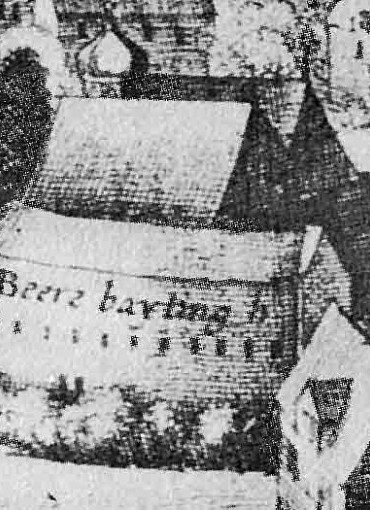IN CAMBRIDGE
History of Material Texts Workshop
Monday 6 March, 12.30-2, Milstein Seminar Room, University Library
‘The Medical Book in the Nineteenth Century: From MS Casebooks to Mass Plagiarism’
A workshop led by Sarah Bull, Wellcome Trust Research Fellow, HPS
Middle English Graduate Seminar
Wednesday, 08/03/17, 5:15pm, English Faculty Room GR04
Rita Copeland (University of Pennsylvania), Enthymeme and Emotion from Aristotle to Hoccleve
Poetics Before Modernity
Tuesday, 7 March 2017, 5.15pm, Old Combination Room at Trinity College
Gavin Alexander (University of Cambridge)
“LYRIC POETICS?”
This paper is about lyric poetry’s place in classical and early modern poetics. That place looks less sure than does that of tragedy or epic—which may be Aristotle’s fault, or due to the nature of lyric; it clearly has something to do with the fact that lyric is hard to define and delimit. I question two common myths about lyric’s place in the system of poetic genres: that there has always been a straightforward and accepted tripartition of poetry into epic, dramatic, and lyric; and, conversely, that this tripartition was only a Romantic discovery. I also resist the direction of the “new lyric studies”, which attempts to challenge the usefulness of the category “lyric” to the understanding of various kinds of short poetry. I trace lyric’s presence in less familiar theoretical settings (grammar, rhetoric) in order to ask if we might consider such treatments as a part of the poetics of lyric. And I aim to show how the interplay between the paradigms and taxonomies of rhetoric and poetics contribute to lyric’s vexed (and rich) status in the history of literary theory. Do Sappho, Pindar, Horace, Petrarch, and Shakespeare actually have something in common that might be captured by the term “lyric”; or should ancient lyric can only be grouped with modern lyric of a strictly neoclassical bent? In considering why it has been difficult to agree about both what a lyric poem is and what features of form, content, mode, or method might characterise lyric, I will suggest how theoretical muddle might be contained by a larger clarity.
Gavin Alexander is Reader in Renaissance Literature in the Faculty of English, University of Cambridge, and a Fellow of Christ’s College. His publications include Writing after Sidney: The Literary Response to Sir Philip Sidney, 1586-1640 (Oxford, 2006), editions of Sidney’s “Defence of Poesy” and Selected Renaissance Literary Criticism (London, 2004) and William Scott’s Model of Poesy (Cambridge, 2013), and the collection Renaissance Figures of Speech (Cambridge, 2007; with Sylvia Adamson and Katrin Ettenhuber).
Early Modern Interdisciplinary Seminar
Wednesday, 8th March, 12-1:15pm, English Faculty, Board Room
In Collaboration with the Centre for Mediaeval and Early Modern Law and Literature (CMEMLL)
Dr Maria Mendes (Escola Superior de Teatro e Cinema, Instituto Politécnico de Lisboa) will present the following paper:
Praise with Purpose: Flattery in Early Modern England
Susceptibility to flattery has long been considered a character flaw, which is the reason those who believe it are usually described as being vain, proud, tyrannical or conceited. I will close-read Shakespeare’s Julius Caesar, so as to question if Caesar’s failure to anticipate the conspirators’ plot is, as is usually thought, an illustration of his proneness to flattery or, as I hope to show, an example of the flatterer’s capacity to mirror one’s own mind. Flatterers might be very able in showing rhetorically what the flattered person’s ideal self would look like, and they might in turn tend to supplement rhetorical suggestion with their own desires and concerns. If this is the case, flattery is central to understanding that Julius Caesar describes a hermeneutic difficulty, and characterises the difficulties of knowing another’s mind.
Early Modern French Seminar
Friday, 10 March, 2-4pm, Clare College, Latimer Room
Phillip USHER (New York University)
Exterranean Insurgency in the Humanist Anthropocene
Early Modern British and Irish History Seminar
Wednesday, 8 March, 5.15pm, Graham Storey Room, Trinity Hall
Alice Soulieux-Evans (Wolfson),
‘“Because thou canst not walk in thy minster’s way”: cathedrals, conformity and the Church of England in the Restoration period’
IN LONDON
British History in the 17th Century Seminar (IHR)
Thursday, 9 March, 17:15, Pollard Room N301, 3rd floor, IHR, North block, Senate House
‘The Print that Binds: official print and personal record keeping in seventeenth-century England’
Frances Maguire (York)





